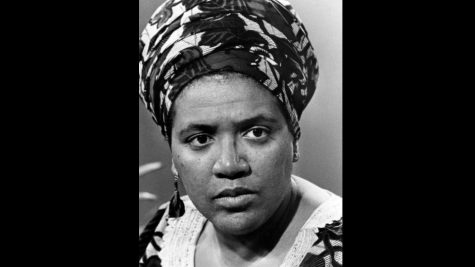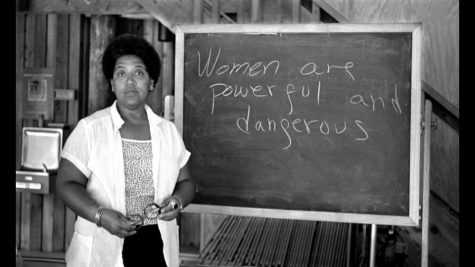Audre Lourde and Her Fight Against Injustice
February 25, 2022
Born in New York City on February 18, 1934, to West Indian immigrants, Audre Lorde was, as she described herself, a “black, lesbian, mother, warrior, poet” whose work continues to influence society. In her time, she spoke out against racism, sexism, homophobia, and classism. 
Lorde was interested in poetry from a young age. She was writing poems by the time she was 12 or 13. Lorde is quoted in Poetry Foundation as saying, “I literally communicated through poetry. And when I couldn’t find the poems to express the things I was feeling, that’s what started me writing poetry.”
Lorde published her first poem in Seventeen magazine while still in high school. She graduated from Hunter College in 1959, then went to Columbia University to get a master’s degree in library science. She graduated in 1961 and married Edward Rollins a year later. They had two children but divorced in 1970. She worked as a librarian in New York public schools for many years. She later taught at John Jay College, Hunter College, and Tougaloo College for a short while.
In 1968, she published First Cities, her first poetry volume. She published many other books of poetry, such as Cables to Rage, From a Land Where Other People Live, New York Head Shop and Museum, Coal, and The Black Unicorn. Lorde also wrote novels, some of which include Zami: A New Spelling of My Name, published in 1982, and Sister Outsider, which was published two years later. Other than poetry volumes, she published many singular poems, some of her most notable being “Who Said It Was Simple”, “Coal”, and “Power”. According to poets.org, “Poet Adrienne Rich said of The Black Unicorn that ‘Lorde writes as a Black woman, a mother, a daughter, a Lesbian, a feminist, a visionary; poems of elemental wildness and healing, nightmare and lucidity.’”
 While Lorde was very accomplished and successful, she faced difficulties. One of the most significant is her fourteen-year battle with breast cancer. During that time, she wrote The Cancer Journals, published in 1980, and an essay collection called A Burst of Light, published nine years later. She died on November 17, 1992, at the age of 58. Before her death, she took the name Gamba Adisa, which means “she who makes her meaning clear”.
While Lorde was very accomplished and successful, she faced difficulties. One of the most significant is her fourteen-year battle with breast cancer. During that time, she wrote The Cancer Journals, published in 1980, and an essay collection called A Burst of Light, published nine years later. She died on November 17, 1992, at the age of 58. Before her death, she took the name Gamba Adisa, which means “she who makes her meaning clear”.
Her work is still significant today because of her fight against homophobia and racism and her documentation of her battle with breast cancer. As Poetry Foundation stated, “Lorde’s contributions to feminist theory, critical race studies, and queer theory intertwine her personal experiences with broader political aims.” Thirty years after her death, Lorde’s poems and pieces continue to inspire others and speak out against injustice.
